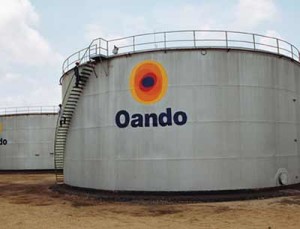
The Acting Director-General of the Securities and Exchange Commission (SEC), Abdul Zubair, has said that there is no going back on the forensic audit of embattled oil and gas company, Oando Plc.
Speaking at a press briefing in Abuja on Tuesday, Zubair said the audit was delayed due to legal challenges, but which have now been cleared.
“SEC as a law abiding corporate entity has been a little bit careful. We gave directives that the audit should go on and we still stand by that. There is no going back on the forensic audit.
“But we had a little challenge down the line because the matter went to court, and as responsible citizens, we had to wait but now that the court has ruled, the auditors have sent out words that they will continue the audit this January. As far as we are concerned there is no going back,” he stated.
Oando’s shares were placed on suspension by the Nigerian Stock Exchange (NSE) on October 19, 2017. The suspension followed an October 18 directive by SEC. Similarly, the Johannesburg Stock Exchange, following an advice from the Nigerian bourse, also suspended the embattled oil firm on October 19, 2017.
In a letter sent by SEC to the company, the commission said there were cases of series of infractions against the management of the oil company.
The letter, dated October 17, 2017 and signed by Braimoh Anastasia, Head of Legal department at SEC, stated that the oil company’s disposal of Oando Exploration Production Limited (OEPL) to Green Park Management Limited was done in contravention of the Investment and Securities Act (ISA) 2007 because the regulatory body was not informed.
SEC also accused Oando of contravening provisions of the Investment and Securities Act (ISA) 2007 by providing “material false and misleading information contrary to section 60(2) of the ISA 2007” in its 2013 and 2014 audited accounts.
The letter also revealed that the 2014 Rights Issue Circular of the company contained information on the profit reported by the company in 2013 arising from the sale of the OEPL, which the commission considered “false and misleading.” This action, it said, amounted to a violation as contained in sections 85, 86 and 87 of the ISA 2007.
The regulator also said its checks revealed that certain persons classified as ‘insiders’ within the provision of section 315 of ISA 2007, and were in possession of confidential price sensitive information not generally available to the public, had between January and October 2015 traded on Oando shares prior to the release of the company’s 2014 financial statement, in which the company reported a loss of N183 billion.
Also in 2013 and 2014, SEC revealed, Oando declared dividends from unrealised profits even as certain Related Party Transactions were not conducted on arm’s length basis, all in violation of the SEC rules and regulations.
The commission said the findings were weighty and required further investigation by an independent team of auditors.
The regulatory body consequently appointed a consortium of Akintola Williams Delloite, United Securities Limited, SPA Ajibade & Co, TJADAP Consulting and Associates, and Nasiru Muhammad and Co. to carry out the forensic audit.
The Minister of Finance, Kemi Adeosun in December expressed support for the forensic audit of the oil firm, stating that “…Oando Plc had a clear case to answer with regard to infractions of the ISA”.
In its 2006 financial report, the external audits of Oando, Messrs Ernst and Young raised doubts over the company’s future as a going concern.